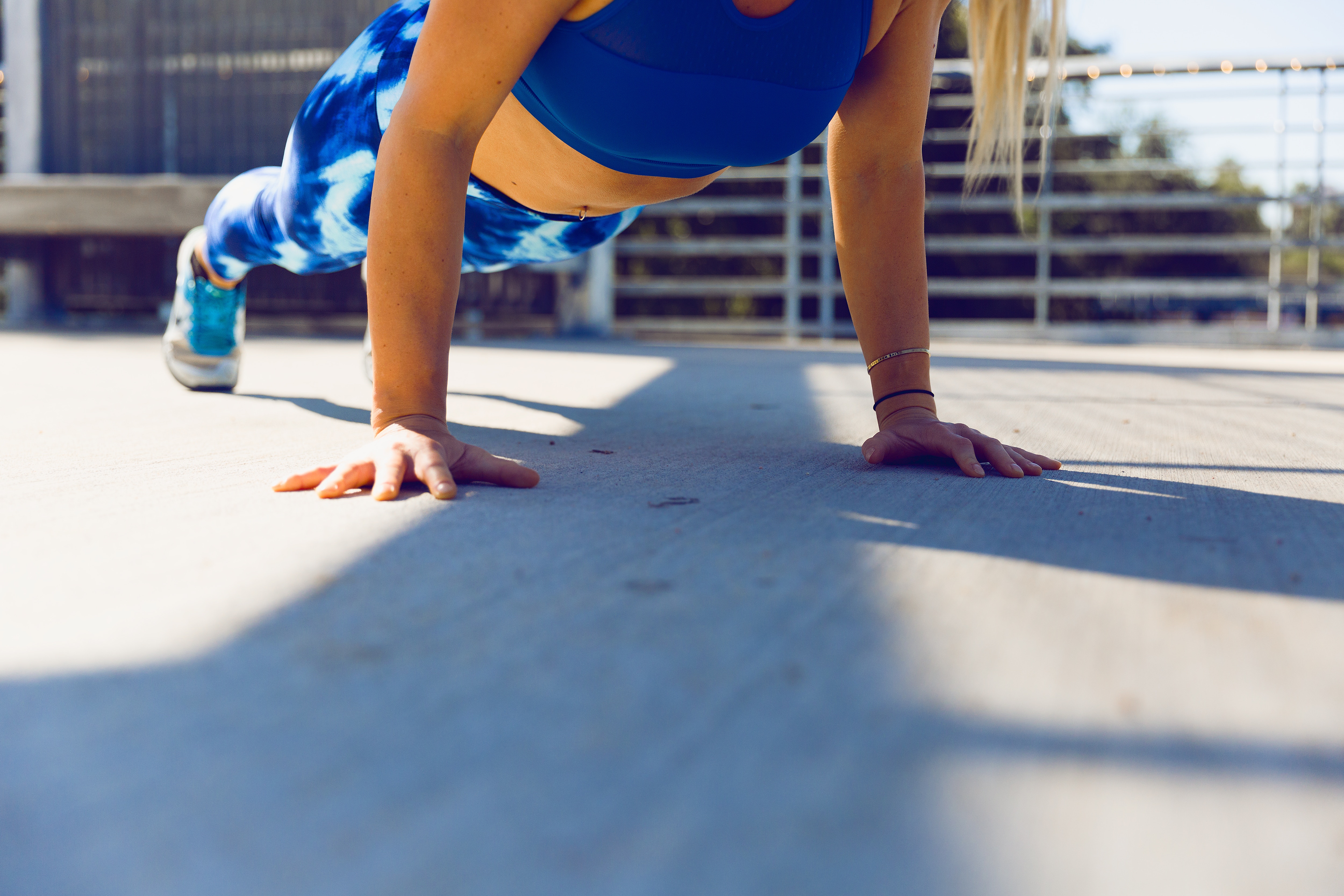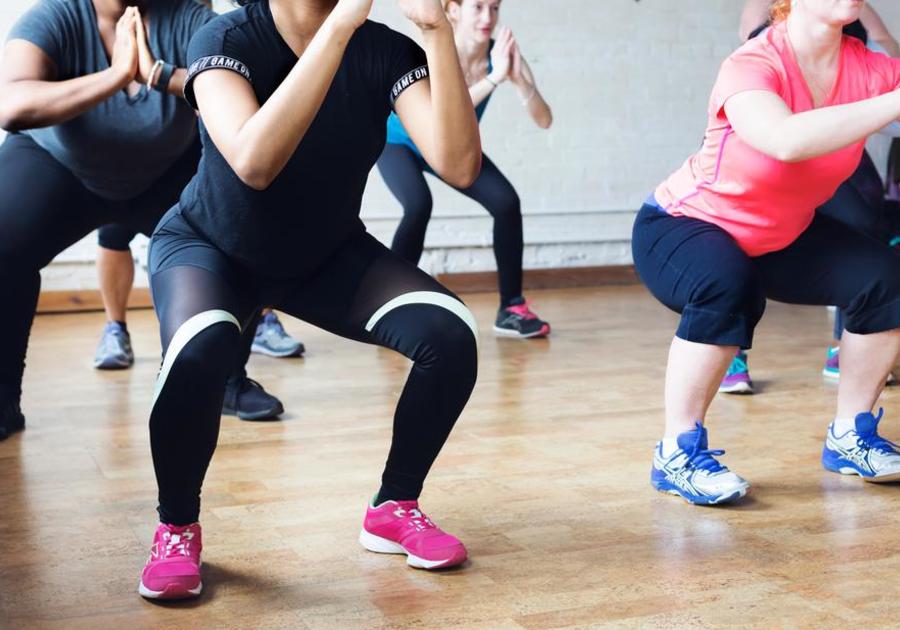
Teaching kids early that exercise is an important part of a healthy lifestyle can start early. There are some easy and fun ways to incorporate exercise and strength training into your daily routine that will benefit kids strength, coordination, balance and confidence. Bodyweight exercises are a fun and easy way to get started with your kids. Starting as early as preschool children can use bodyweight exercises to help with gross motor development and the benefits increase from there. We spoke with Heather Harrison, PT, DPT, OCS Therapy Clinic Manager - Huntersville to get the lowdown on body weight exercises, who should do them, how to do them and what you need to know about bodyweight exercises.
What are bodyweight exercises?
Bodyweight exercises are exercises that you can perform using the weight of your own body. Bodyweight exercises often involve multiple joints and muscles, which can be effective in regards to improving your overall level of fitness. For instance, when you do push-ups, you are not only using the muscles in your arms and chest, but you also have to engage your abdominals, gluts and muscles in your legs in order to maintain proper form.
What are the benefits of bodyweight exercises?
Bodyweight exercises are great because you can do them in the convenience of your own home without the need for additional equipment. There are a wide variety of bodyweight exercises as well as modifications that you can perform based on your level of fitness. Since you do not need any equipment, you can fit multiple exercise sessions in throughout the day with short 5-15 minute intervals vs. having to set aside 30-60 minutes, which is not always easy to do with children and a hectic schedule. Also, if you are on a budget, you can save money by exercising at home and not paying the monthly fees that are associated with a gym.
Are bodyweight exercises as effective as weighted exercises?
The answer to this question can depend on your fitness goal. If your goal is to stay fit and healthy, you can increase the challenge of bodyweight exercises by increasing repetitions and sets as well as increasing the hold time of the specific exercise. However, if your goal is to build muscle, you may hit a point where the bodyweight exercises are no longer challenging and you will need to add weights or switch to a more difficult bodyweight exercise to continue to build strength.
Should adults include bodyweight exercises into their fitness routine?
Bodyweight exercises are an easy way to incorporate exercise into your daily fitness routine as well as add an element of cross training to help you to reduce your risk of injury. However, the most important thing is to find a variety of activities that you enjoy to help you to stay fit and healthy. Some people love running or biking, while others love lifting weights, group fitness classes or yoga. If you vary your workouts to include cardiovascular exercise, strength training and flexibility, you will be able to stay active and minimize your risk of injury.
Is there a risk of overtraining with bodyweight exercises?
Certainly, there is a risk of overtraining with any form of exercise. If you only do one activity or the same exercise with improper form, you can set yourself up for repetitive stress injuries. Your best option is to pay attention to your body alignment and technique as you get tired. If you start losing proper form, or if you are experiencing a level of pain that is outside of normal muscle burn, then you probably need to take a rest break or switch to a different exercise to give that muscle group a break.
At what age can kids start to do bodyweight exercises?
Young children typically develop their strength and coordination using play. Children as young as two will often mimic their parents that are exercising in the home. My own children will often play around and attempt to do squats or certain yoga positions with me at home. However, children as young as 2 and 3 will not have the attention span or patience to do repetitive bodyweight exercises unless you can make a game out of it.
As children get older, around 4 or 5 years of age, they can start doing more repetitive bodyweight exercises. What I have found with my own children, is that they love to help me count while doing the exercises. Certainly, continuing to make a game out of exercises also helps to encourage your children to participate. My five year old loves to have plank and push up competitions at home. I have also found some fun children's yoga videos on YouTube (Cosmic Kids Yoga) that tells children's stories while incorporating yoga positions and bodyweight exercises. My daughter loves it so much that she will often request for me to do yoga with her prior to going to bed.
Do bodyweight exercises help in the recovery from injuries?
As a physical therapist, I utilize bodyweight exercises daily to help my patients recover from injury and recuperate following surgery. Often bodyweight exercises are the first component of the customized home exercise program that we prescribe for our patients at OrthoCarolina. For our patients that are recovering from surgery, bodyweight exercises can be helpful to regain functional tasks such as walking, negotiating stairs and getting out of a chair. For our athletes and weekend warriors that are recovering from injuries, we will modify the bodyweight exercises so they are more sports specific. For example, we may utilize single leg squats with an injured basketball player that needs to be able to push off of his/her injured leg in order to be able to perform a layup. As for an injured runner with Achilles tendonitis, we may prescribe heel raises on the edge of a step as well as bodyweight hip and core strengthening exercises to help them to get back to running without pain. As my patients progress, I will gradually increase the repetitions and utilize weights and resistance bands once the bodyweight exercises become too easy.
What are some sample bodyweight exercises that you can do with your kids?
Preschool
Crab walk
Bear walk
Walking on tip toes
Elementary
Inchworms
Supermans
Jumping Jacks
Middle school
Planks
Push ups
Squats
High School
Squat jumps
Lunges
Burpees
We love the insight we gain from Heather! Want to read more by Heather? Read these posts she worked with us on keeping cheerleaders injury free and what parents need to know about gymnastics!
Heather Harrison, PT, DPT, OCS - Heather is the clinic manager for OrthoCarolina is Huntersville, NC. Heather attended the University of North Carolina at Chapel Hill where she received her Bachelor of Arts degree in Exercise and Sports Science. Heather has always had a passion for exercise and wellness and developed her love for the field of physical therapy since she was a patient herself due to multiple injuries and surgeries from being a competitive gymnast, dancer, and cheerleader from elementary school through her time at UNC - Chapel Hill where she competed and performed on the sidelines during Football and Basketball games as a member of the UNC Dance Team. Following undergrad, Heather received her Doctor of Physical Therapy degree from Duke University. More recently, Heather earned her designation as an Orthopedic Certified Specialist through the American Board of Physical Therapy Specialties. Her experience as in cheerleading and gymnastics includes being a UCA and Spirit Xpress Cheerleading Camp Instructor from 2000 - 2006. Heather also worked as an All-Star Cheerleading coach for White Lightning All-Stars after graduating from Duke University. Heather became level 5 certified for All-Star Cheerleading by the USASF in 2011. She retired from coaching after she had her first daughter, Quinn, in 2012 in order to spend more time with her growing family.
To make an appointment with Heather or another provider at OrthoCarolina visit the OrthoCarolina website.
Get social with OrthoCarolina
Facebook, Instagram, YouTube and Twitter



